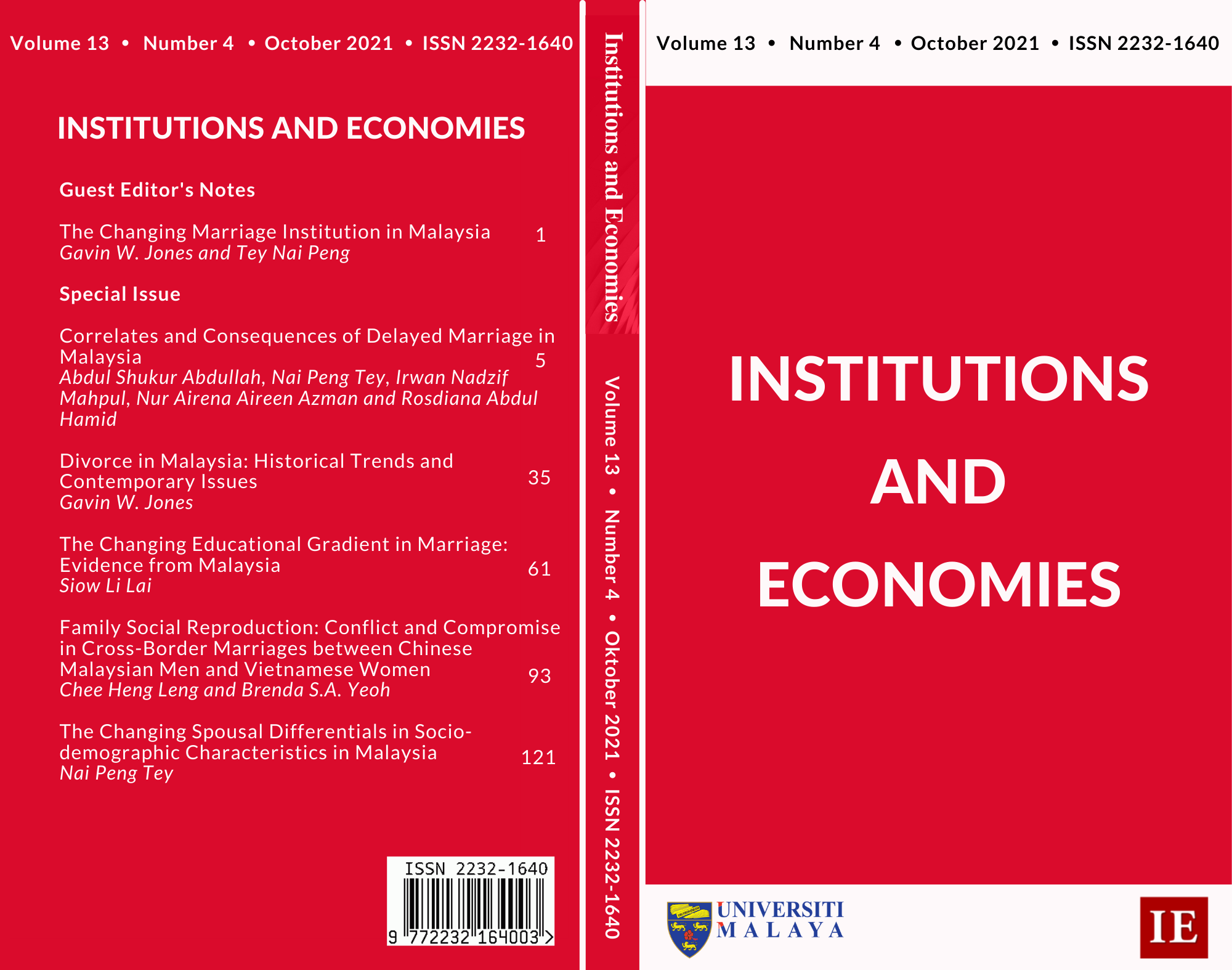The Changing Educational Gradient in Marriage: Evidence from Malaysia
DOI:
https://doi.org/10.22452/IJIE.vol13no4.3Keywords:
Educational level, Marital status, Ever married, Singulate mean age at marriage, EthnicityAbstract
The rising age at marriage and non-marriage has been occurring concurrently with the rising educational level in many developing countries. This paper examines the changing relationship between educational attainment and the marriage rate (per cent ever married) and timing (age at marriage) in Malaysia over the past four decades, using multiple waves of Labour Force Survey data. Bivariate analyses show significant educational differentials in the proportion ever married and mean age at marriage for males and females, across ethnic groups and urban-rural locations. The educational effect on the rate and timing of marriage varied over time. Results from binary logistic regression show that controlling for ethnicity, urban-rural location, and age, the negative educational effect on the rate of marriage has turned positive in recent years. The change in the direction of the relationship between education and marriage rate was more pronounced for males than for females. The reduction in the educational gradient and a shift from negative to positive effect means that the conventional hypothesis of the education-marriage nexus needs to be re-assessed. The effects of rising education on the rate and timing of marriage should be considered in the implementation of the National Family Policy.
Downloads
Downloads
Published
How to Cite
Issue
Section
License
Submission of a manuscript implies: that the work described is original, has not been published before (except in the form of an abstract or as part of a published lecture, review, or thesis); that is not under consideration for publication elsewhere; that its publication has been approved by all co-authors, if any, as well as tacitly or explicitly by the responsible authorities at the institution where the work was carried out. Transfer of copyright to the University of Malaya becomes effective if and when the article is accepted for publication. The copyright covers the exclusive right to reproduce and distribute the article, including reprints, translations, photographic reproductions, microform, electronic form (offline and online) or other reproductions of similar nature.
An author may self-archive the English language version of his/her article on his/her own website and his/her institutions repository; however he/she may not use the publishers PDF version which is posted on www.ijie.um.edu.my. Furthermore, the author may only post his/her version, provided acknowledgement is given to the original source of publication and a link must be accompanied by the following text: The original publication is available at www.ijie.um.edu.my.
All articles published in this journal are protected by copyright, which covers the exclusive rights to reproduce and redistribute the article (e.g. as offprint), as well as all translation rights. No material published in this journal may be reproduced photographically or stored on microfilm, in electronic database, video disks, etc., without first obtaining written permission from the publishers. The use of general descriptive names, trade names, trademarks, etc., in this publication, even if not specifically identified, does not imply that these names are not protected by the relevant laws and regulations.
The copyright owners consent does not include copying for general distribution, promotion, new works, or resale. In these cases, specific written permission must first be obtained from the publishers.








